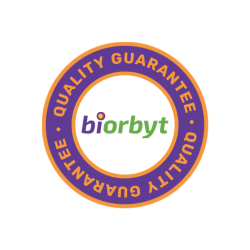You have no items in your shopping cart.
Cart summary

Profilin 4 Protein, Human, Recombinant (His)
Catalog Number: orb1955733
| Catalog Number | orb1955733 |
|---|---|
| Category | Proteins |
| Description | PFN4, also known as profilin 4, is a member of the profilin family. Profilin can be detected in all eukaryotic organisms. It plays an important role in the spatially and temporally controlled growth of actin microfilaments. Profilin is one of the most abundant actin monomer binders, but proteins such as CAP and (in mammals) thymosin β4 have some functional overlaps with profilin. In contrast, ADF/cofilin has some properties that antagonize profilin action. PFN4 also functions in the dynamic turnover and restructuring of the actin cytoskeleton. |
| Tag | N-His |
| Purity | 98.00% |
| UniProt ID | Q8NHR9 |
| MW | 16.2 kDa (predicted); 14 kDa (reducing conditions) |
| Application notes | A Certificate of Analysis (CoA) containing reconstitution instructions is included with the products. Please refer to the CoA for detailed information. |
| Expression System | E. coli |
| Biological Origin | Human |
| Biological Activity | PFN4, also known as profilin 4, is a member of the profilin family. Profilin can be detected in all eukaryotic organisms. It plays an important role in the spatially and temporally controlled growth of actin microfilaments. Profilin is one of the most abundant actin monomer binders, but proteins such as CAP and (in mammals) thymosin β4 have some functional overlaps with profilin. In contrast, ADF/cofilin has some properties that antagonize profilin action. PFN4 also functions in the dynamic turnover and restructuring of the actin cytoskeleton. |
| Expression Region | A DNA sequence encoding the human PFN4 (NP_955378.1) (Met1-Ser129) was expressed with a polyhistide tag at the N-terminus. Predicted N terminal: His |
| Storage | -20°C |
| Note | For research use only |


